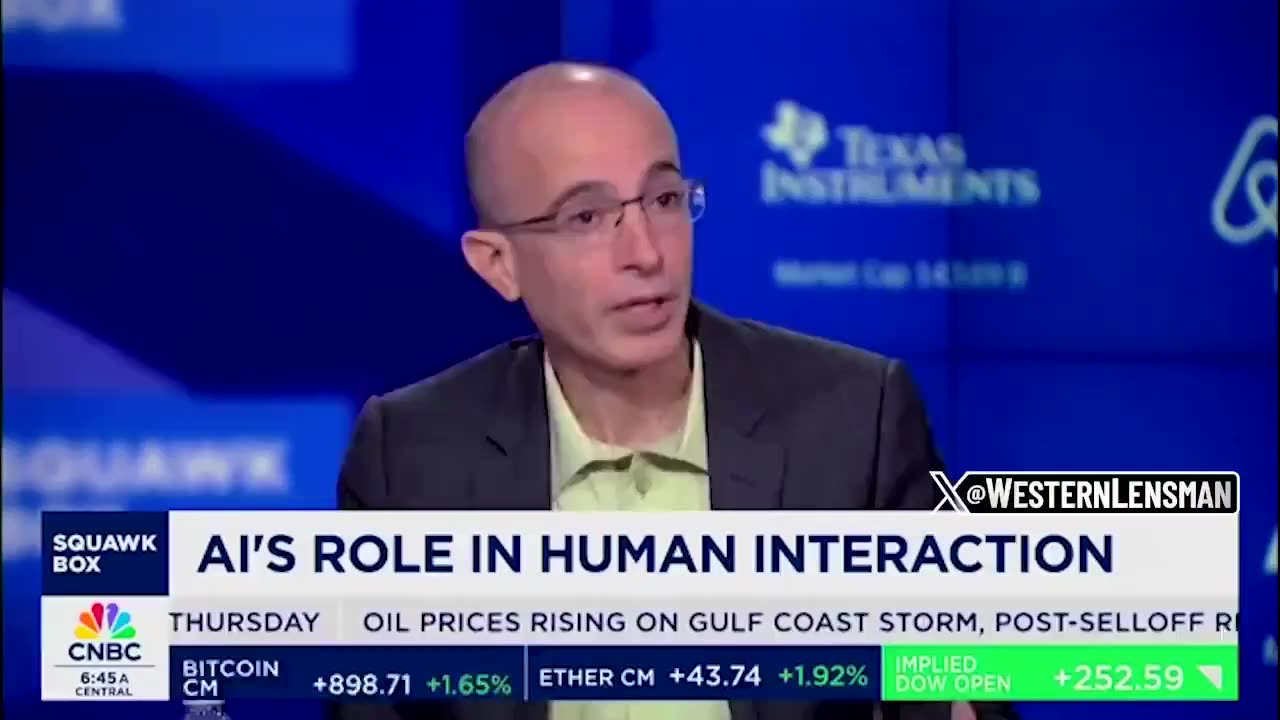Premium Only Content

Harari on How to Regulate AI
In the United States, Section 230 is a section of the Communications Act of 1934 that was enacted as part of the Communications Decency Act of 1996, which is Title V of the Telecommunications Act of 1996, and generally provides immunity for online computer services with respect to third-party content generated by its users. At its core, Section 230(c)(1) provides immunity from liability for providers and users of an "interactive computer service" who publish information provided by third-party users:
No provider or user of an interactive computer service shall be treated as the publisher or speaker of any information provided by another information content provider.
Section 230(c)(2) further provides "Good Samaritan" protection from civil liability for operators of interactive computer services in the good faith removal or moderation of third-party material they deem "obscene, lewd, lascivious, filthy, excessively violent, harassing, or otherwise objectionable, whether or not such material is constitutionally protected."
Section 230 was developed in response to a pair of lawsuits against online discussion platforms in the early 1990s that resulted in different interpretations of whether the service providers should be treated as publishers or, alternatively, as distributors of content created by their users. Its authors, Representatives Christopher Cox and Ron Wyden, believed interactive computer services should be treated as distributors, not liable for the content they distributed, as a means to protect the growing Internet at the time.
Section 230 was enacted as part of the Communications Decency Act (CDA) of 1996 (a common name for Title V of the Telecommunications Act of 1996), formally codified as part of the Communications Act of 1934 at 47 U.S.C. § 230.[a] After passage of the Telecommunications Act, the CDA was challenged in courts and was ruled by the Supreme Court in Reno v. American Civil Liberties Union (1997) to be unconstitutional, though Section 230 was determined to be severable from the rest of the legislation and remained in place. Since then, several legal challenges have validated the constitutionality of Section 230.
Section 230 protections are not limitless and require providers to remove material illegal on a federal level, such as in copyright infringement cases. In 2018, Section 230 was amended by the Stop Enabling Sex Traffickers Act (FOSTA-SESTA) to require the removal of material violating federal and state sex trafficking laws. In the following years, protections from Section 230 have come under more scrutiny on issues related to hate speech and ideological biases in relation to the power that technology companies can hold on political discussions and became a major issue during the 2020 United States presidential election, especially with regard to alleged censorship of more conservative viewpoints on social media.
Passed when Internet use was just starting to expand in both breadth of services and range of consumers in the United States,[2] Section 230 has frequently been referred to as a key law, which allowed the Internet to develop.[3]
-
 LIVE
LIVE
The Charlie Kirk Show
57 minutes agoZelensky’s Setup? + Border Recovery | Sen. Mullin, Hemingway, Bensman | 3.3.25
7,284 watching -
 55:30
55:30
The Dan Bongino Show
3 hours agoThe Explosive White House Meeting That Changed Everything (Ep. 2434) - 03/03/2025
522K932 -
 LIVE
LIVE
Benny Johnson
1 hour ago🚨 AOC Going to JAIL For Leaking ICE Raid!? Trump to END Military Aid to Ukraine After WH Boss Move
15,664 watching -
 LIVE
LIVE
Grant Stinchfield
58 minutes agoThe Real Story Behind the War in Ukraine
237 watching -
 1:05:36
1:05:36
The Rubin Report
2 hours agoTrump & Zelenskyy’s First Reactions to Disastrous Meeting
40K10 -
 2:02:45
2:02:45
Steven Crowder
4 hours agoShould Trump Ditch Free-riding NATO After Zelensky Blowup?
359K227 -
 LIVE
LIVE
LFA TV
23 hours agoWALK AWAY FROM UKRAINE! | LIVE FROM AMERICA 3.3.25 11AM
4,895 watching -
 LIVE
LIVE
Flyover Conservatives
20 hours agoTucker, Sachs & the Truth About Zelensky That Changed Everything. Maine Transgender Protest. Kieran Culkin’s Viral Oscars Moment. | FOC Show
678 watching -
 1:04:41
1:04:41
Timcast
3 hours agoUK Vows To Deploy TROOPS Into Ukraine, Democrats CHANT WAR After Trump ROASTED Zelenskyy | Timcast
75.2K114 -
 DVR
DVR
Bannons War Room
13 days agoWarRoom Live
3.45M630